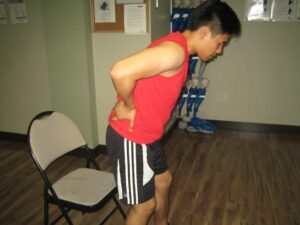A hip fracture is not only a broken bone but can cause a big change in the lives of the elderly. In most cases, surgery is required and it will take up to a year or more to fully recover. Appropriate activities and physical therapy can help establish strength and mobility back. Of course, it is important that the individual is supported by his/her family or a caregiver during the recovery process.
Majority of hip fractures typically occur among individuals who are 65 years old or older. Individuals who are included in this age group must avoid falls. Many individuals break their hip near the upper part of the femur. This usually occurs where the femur fits into the hip joint.
Causes of hip fractures
Falls are the most common cause of hip fractures among the elderly. As individuals get older, the bones naturally lose strength and are prone to breaks even from a minor fall. Young adults and children are also prone to hip fractures due to sports injuries or vehicular accidents.
Other factors that can increase your risk for hip fracture include:
- Family history
- Women
- Smoking
- Sedentary lifestyle
- Poor eating habits
- Intake of certain medications that causes bone loss
- Medical conditions that cause balance problems or dizziness
Symptoms of a hip fracture
If a hip fracture is suspected, it typically involves severe pain in the hip or lower groin. The individual could not walk properly or put weight on the leg.

These symptoms are quite common after a fall. As for individuals who have thin bones due to osteoporosis or other medical conditions, the hip can easily break without falling. In rare cases, some individuals will only suffer from knee or thigh pain and could still walk.
How a hip fracture is diagnosed
Your doctor will request an X-ray in order to diagnose a hip fracture. If your doctor suspects a fracture but could not see it on an X-ray, a CT scan, MRI or bone scan will be requested.
Treatment for hip fracture
Surgery is typically recommended to fix the broken hip. This approach works well but it will take some time and you might not be able to move around unlike before the injury was sustained. The type of surgery performed depends on the location of the break and how severe it is. It might involve the placement of a metal plate, metal screws or a rod in the hip to fix the break. In some cases, a part of the hip or the whole hip is replaced.
After the surgery, your doctor will recommend activities in order to prevent problems such as blood clots, pneumonia and bed sores. These typically develop if an individual stayed in bed for an extended period.
How to prevent a hip fracture
There are various ways in order to prevent a hip fracture. The most important consideration is to prevent osteoporosis from developing. Osteoporosis can be prevented by getting plenty of vitamin D and calcium by eating foods such as cheese, milk, yogurt and other dairy foods.
Preventing falls is also important, especially among the elderly. In case of severe falls, it is important to call for emergency assistance right away so that further damage can be prevented.
